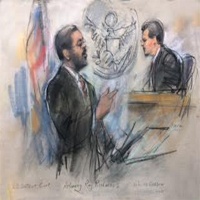Trenton Criminal Lawyer, Michigan
Sponsored Law Firm
-
 x
x

Click For More Info:
-
Richards & Associates, PLLC
200 East Big Beaver Road Troy, MI 48083» view mapCriminal Defense Accomplished Criminal Defense Attorney
If you face criminal charges, you deserve an experienced defense lawyer who has a reputation for winning the tough cases.
800-844-5250
Danielle Suzanne Cadoret
Sexual Harassment, Divorce & Family Law, Criminal, Civil & Human Rights
Status: In Good Standing Licensed: 11 Years
Edward A. Alice
Health Care, Estate, Divorce & Family Law, Criminal
Status: Inactive Licensed: 53 Years
Eugene Ferguson
Bankruptcy & Debt, Criminal, Divorce & Family Law, Estate
Status: In Good Standing Licensed: 42 Years
Blaise A. Repasky
Estate Planning, Family Law, Divorce & Family Law, Criminal
Status: In Good Standing Licensed: 52 Years
John A. Camilleri
Personal Injury, Criminal, Estate, Accident & Injury
Status: In Good Standing Licensed: 32 Years
Christina Ann Mcgill
Family Law, Adoption, Divorce & Family Law, Criminal
Status: In Good Standing Licensed: 20 Years
John O. Knappmann
Criminal, Juvenile Law, Estate, Estate Planning, Medical Malpractice
Status: In Good Standing
 Ray Richards Troy, MI
Ray Richards Troy, MI AboutRichards & Associates, PLLC
AboutRichards & Associates, PLLC Practice AreasSpecializations
Practice AreasSpecializations
